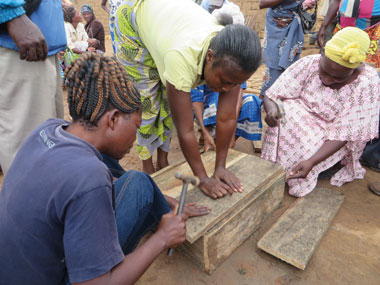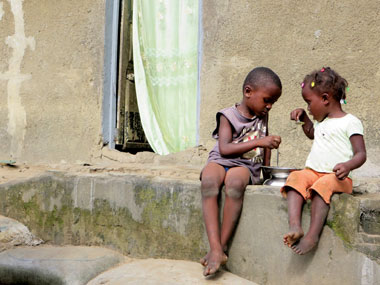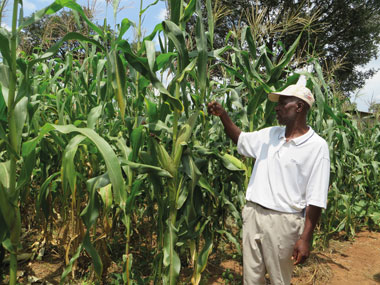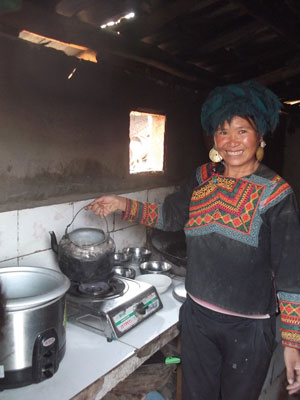Climate change is affecting the daily lives of the world's poorest people, who often depend on subsistence farming for their livelihoods. A tea farmer in India can lose an entire crop because changes in temperature and rainfall patterns have drastically altered flowering patterns. The media is overwhelmed with reports of environmental refugees as people flee drought or floods.
The Salvation Army is responding to global warming in many ways, supporting conservation agriculture, agroforestry projects, intercropping, bee keeping and caterpillar raising (a cheap source of protein).
Major Heather Poxon, The Salvation Army's international projects officer, shares photos from projects making a difference in the fight against climate change.

The Salvation Army in the Democratic Republic of Congo is teaching women how to make a beehive. Keeping bees helps to preserve the biodiversity of an area, encourages the protection of forests and—through selling honey and other products—can provide a substantial income.

Children in the Democratic Republic of Congo eat a paste made from the ground leaves of the moringa tree. Moringa (also known as the miracle tree) has leaves that are rich in nutrients and can be effective in stopping malnutrition. Growing these trees helps with reforestation efforts and reduces the effects of carbon emissions.

Honest Gudu, a farmer in Kenya, with his maize crop, which has been grown using conservation farming methods. These methods help to keep the structure of the soil healthy, moist and weed-free. They help farmers to withstand the negative effects of longer dry seasons and unexpected rains.

Shamadidi, from Yunnan province in China, is pictured boiling water on her biogas stove. The Salvation Army is working with her community to encourage the use of biogas for cooking rather than wood. In the long term, this should help slow down the rate of deforestation, which in turn leads to erosion and desertification.
Adapted from All the World. For the full article, click here.
The Salvation Army is responding to global warming in many ways, supporting conservation agriculture, agroforestry projects, intercropping, bee keeping and caterpillar raising (a cheap source of protein).
Major Heather Poxon, The Salvation Army's international projects officer, shares photos from projects making a difference in the fight against climate change.

The Salvation Army in the Democratic Republic of Congo is teaching women how to make a beehive. Keeping bees helps to preserve the biodiversity of an area, encourages the protection of forests and—through selling honey and other products—can provide a substantial income.

Children in the Democratic Republic of Congo eat a paste made from the ground leaves of the moringa tree. Moringa (also known as the miracle tree) has leaves that are rich in nutrients and can be effective in stopping malnutrition. Growing these trees helps with reforestation efforts and reduces the effects of carbon emissions.

Honest Gudu, a farmer in Kenya, with his maize crop, which has been grown using conservation farming methods. These methods help to keep the structure of the soil healthy, moist and weed-free. They help farmers to withstand the negative effects of longer dry seasons and unexpected rains.

Shamadidi, from Yunnan province in China, is pictured boiling water on her biogas stove. The Salvation Army is working with her community to encourage the use of biogas for cooking rather than wood. In the long term, this should help slow down the rate of deforestation, which in turn leads to erosion and desertification.
Adapted from All the World. For the full article, click here.










Leave a Comment